PsychNewsDaily Publishers
100 Summit Drive
Burlington, MA, 01803
Telephone: (320) 349-2484
PsychNewsDaily Publishers
100 Summit Drive
Burlington, MA, 01803
Telephone: (320) 349-2484
Mental health support in Virginia includes crisis counseling, ongoing therapy, and specialized programs, accessible through community health boards and nonprofit organizations for eligible residents.
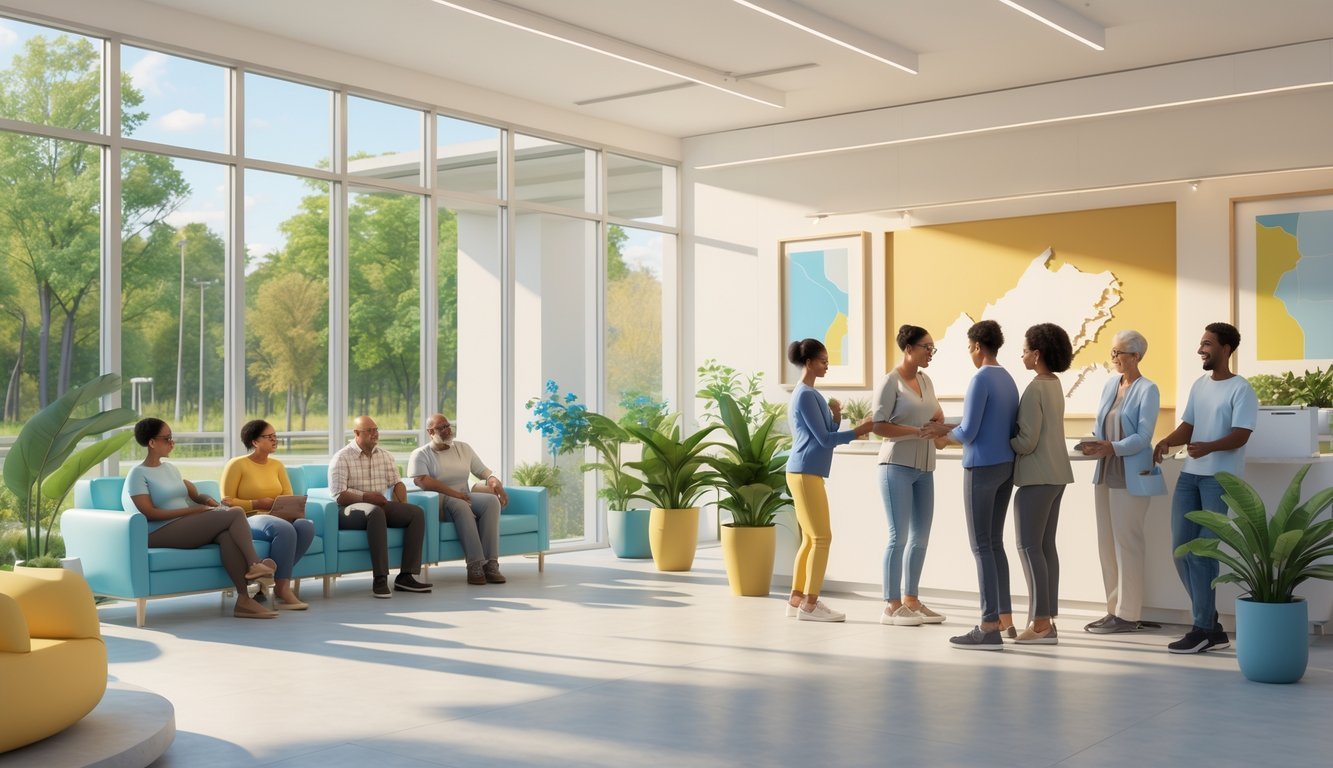
Mental health struggles touch millions of Americans, and the cost of treatment can make it tough to get help. If you live in Virginia and need mental health support, you’ll find lots of free services ready to help you get through hard times.
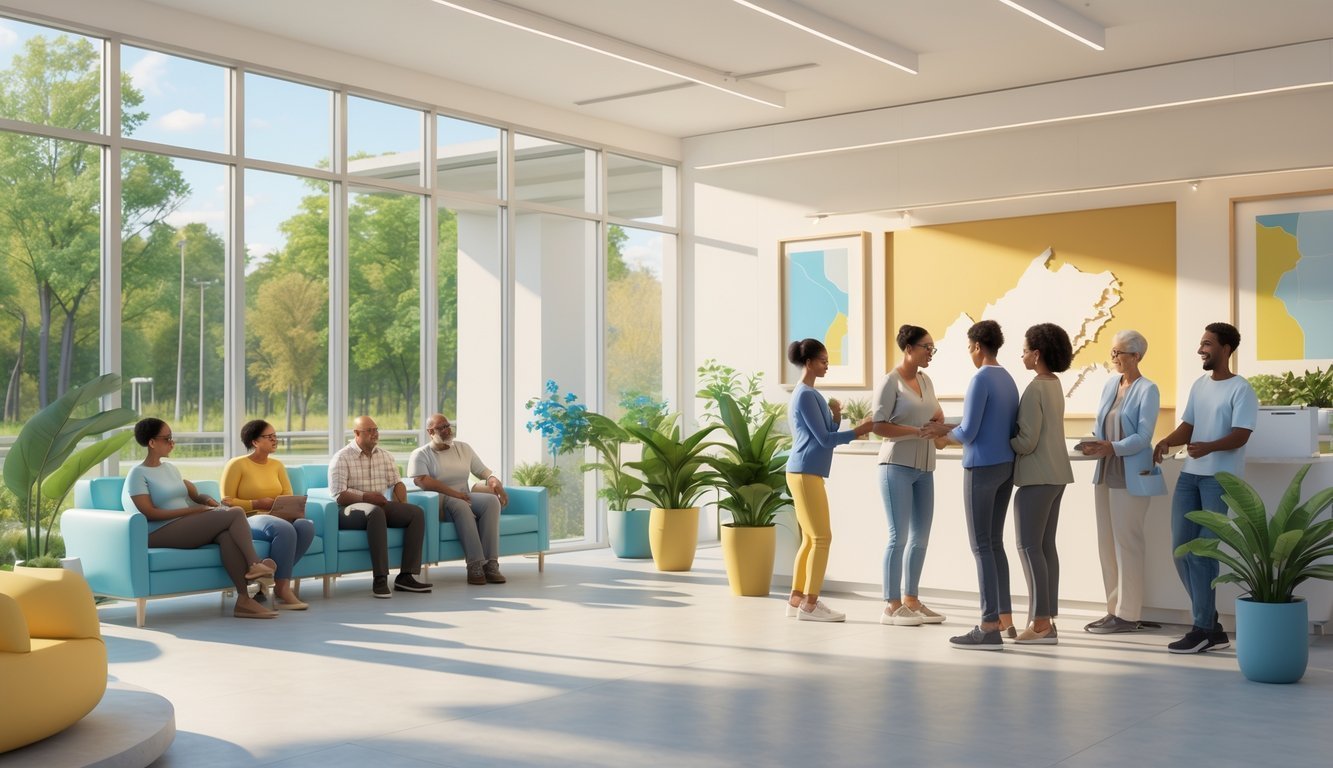
Virginia has a big mix of no-cost mental health services. You’ll find crisis counseling, emergency support, ongoing therapy, and even special programs for certain groups.
State programs, community organizations, healthcare systems, and nonprofit groups all pitch in throughout the Commonwealth.
Whether you’re in crisis, need regular counseling, or want help connecting to long-term care, Virginia’s got resources for you. Knowing what’s out there and how to reach it can be the first step toward feeling better and taking care of your mental health.
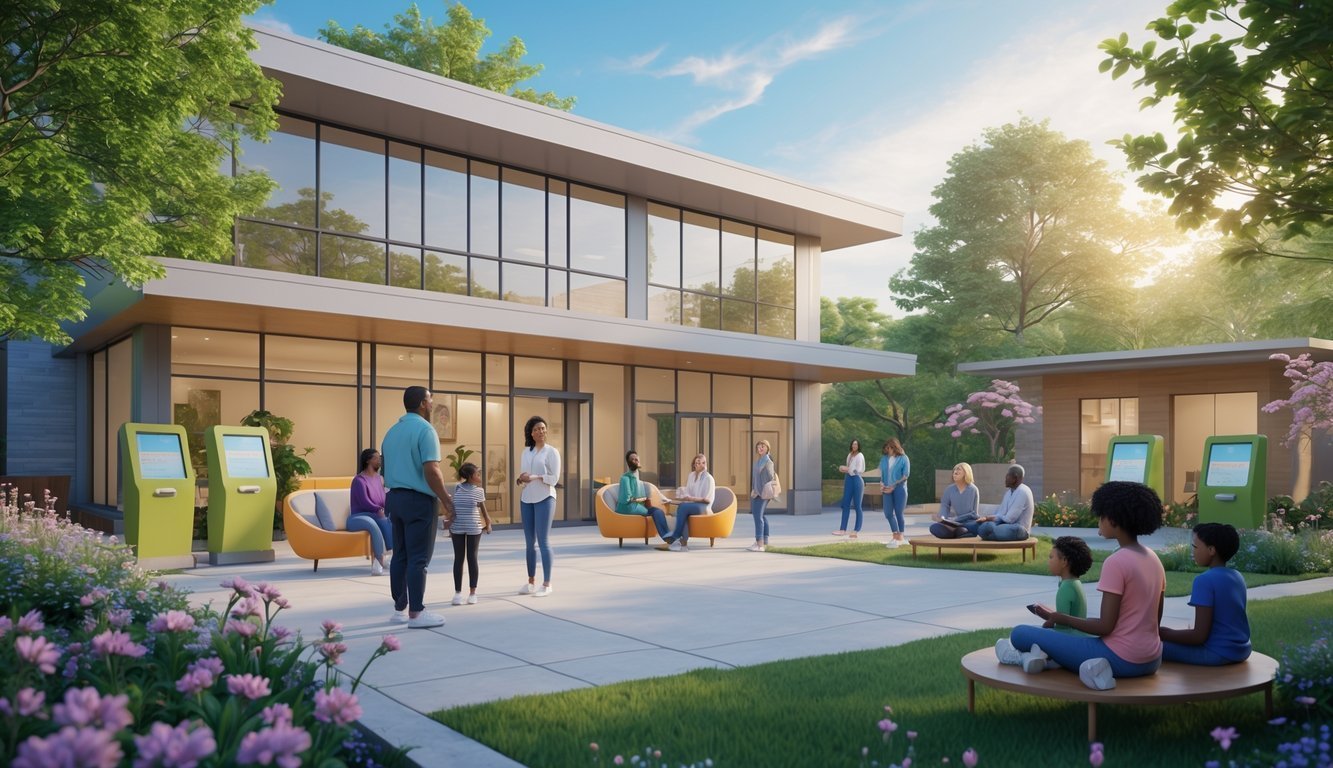
Virginia has many free mental health services through community health boards, hotlines, and special programs. If you meet certain requirements, you can get therapy, crisis support, and behavioral health services without paying.
Virginia offers different kinds of no-cost mental health care. The Fairfax-Falls Church Community Services Board offers behavioral health services for mental health concerns, substance use, and developmental disabilities.
Crisis Services:
Ongoing Treatment:
The Community Services Board has special programs for kids and teens with serious emotional and behavioral health issues. These programs build treatment plans around each person.
University students can get free services too. All University of Virginia students have 24/7 virtual mental health services through their health fee.
Most community mental health services in Virginia are free or low-cost based on your income. You don’t need insurance for crisis or emergency care.
Community Services Boards serve people no matter their ability to pay. They focus on those with the most serious mental health needs first.
You might qualify if you’re:
University students qualify for campus mental health services when they pay their student health fees. This covers in-person and virtual therapy.
Some programs have waiting lists because of high demand. Crisis services stay open and ready whenever you need them.
How you get help depends on where you live in Virginia. Each region has its own contact numbers and walk-in spots for mental health services.
Northern Virginia:
Statewide:
University Access:
Staff can help you in English and Spanish. If you need another language, they can bring in interpreters.
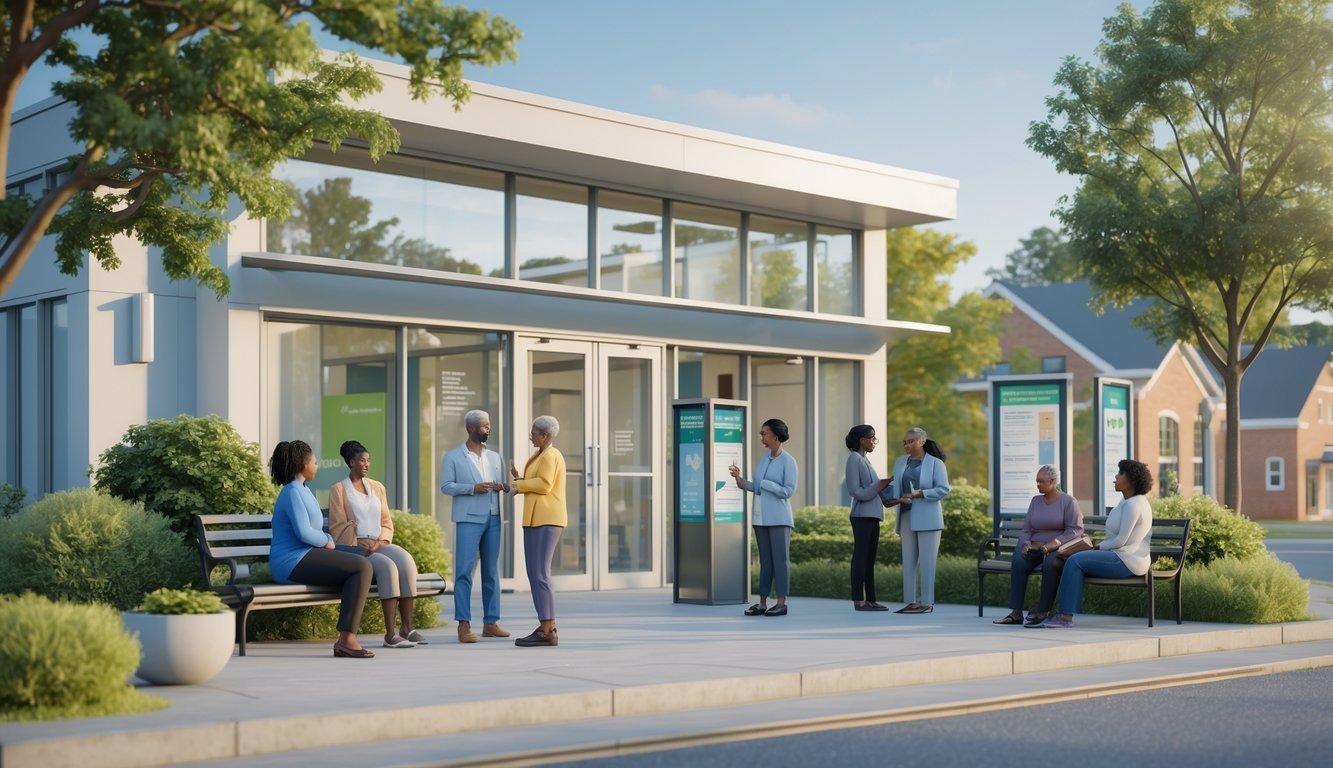
Virginia has several organizations that provide free mental health services. Community Services Boards are the local mainstay, while Mental Health America of Virginia offers peer support. Nonprofit clinics help fill the gaps.
Community Services Boards are the main providers of free mental health services in Virginia. Each one serves certain counties and cities.
The Fairfax-Falls Church Community Services Board gives mental health services for people in those areas. You can walk in or call to get started.
Service Hours:
CSBs offer crisis help, ongoing therapy, and substance abuse treatment. You can get services even if you can’t pay.
Staff speak English and Spanish, and they’ll bring in interpreters for other languages if you need it.
Mental Health America of Virginia focuses on peer support and advocacy. People with lived experience help others find their way through mental health challenges.
You can join peer support groups that meet regularly. Folks who have gone through similar things lead these groups.
The organization offers:
Mental Health America of Virginia also puts out online resources and toolkits. You’ll find info about managing conditions and recovery tips.
Their peer specialists really get what you’re going through because they’ve been there themselves.
Nonprofit groups and free clinics around Virginia offer mental health services for free. They often focus on people without insurance or those who are underserved.
Free clinics usually ask for proof of income. Most serve people earning under a certain amount.
You might find:
Some religious groups offer counseling with trained pastoral counselors. Churches and faith communities often open these services to anyone.
Community health centers get federal funding and offer mental health care on a sliding fee scale. Depending on your income, you might get care for free.
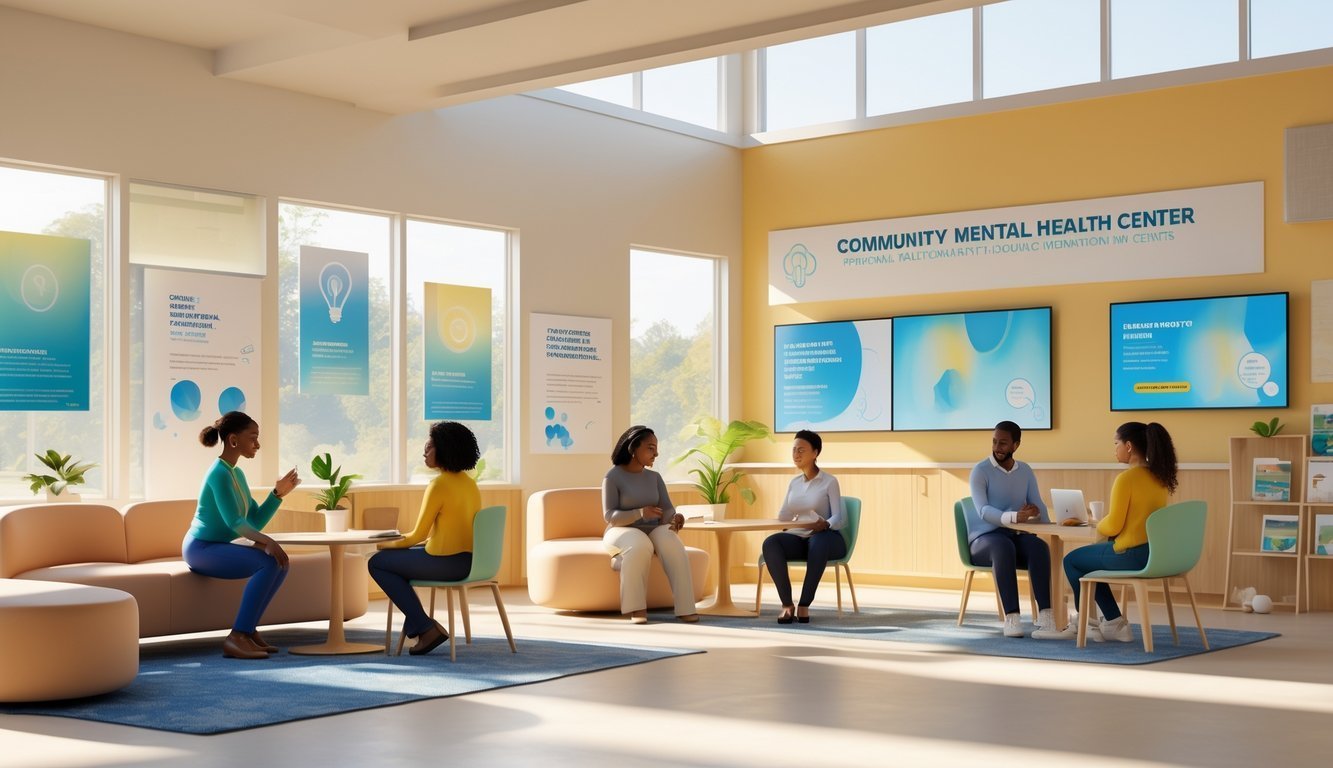
Virginia has mental health programs that go beyond basic counseling. You’ll find case management, virtual therapy, and special care for children and families.
Case management helps you find your way through Virginia’s mental health system. These services connect you to the right resources and keep your care organized.
The Fairfax-Falls Church Community Services Board offers full case management for people with serious mental health needs. Your case manager helps you get housing, job support, and medical care.
Case managers can:
They’ll work with you on a treatment plan and check in often to see if your needs change.
Virtual mental health services make therapy easier to get across Virginia. You can talk to counselors from home using video calls.
The Virtual Psychotherapy Program for Caregivers has individual and group therapy online. It’s designed for family caregivers who can’t travel easily.
Virtual therapy includes:
Lots of Virginia providers now do telehealth. You’ll just need a good internet connection and a private spot.
University of Virginia students get free 24/7 virtual mental health access through their counseling center. This is for all students who pay the health fee.
Virginia has special mental health programs for kids, families, and certain groups. These services cover needs that regular therapy might not.
The Fairfax-Falls Church Community Services Board offers behavioral health services for children and teens with serious emotional issues. Your child gets an assessment and a plan just for them.
Children’s services:
You can call 703-383-8500 to set up a screening. Walk-ins are welcome Monday to Thursday from 8:00 a.m. to 3:00 p.m.
Veterans and their families can use special VA programs that understand military life challenges.
University students get focused support through campus counseling centers. UVA’s counseling services offer help just for college-age mental health needs.
Finding free mental health help in Virginia means knowing who to call and what to expect. You can connect through hotlines and by being ready for your first appointment.
Virginia has several free phone lines for immediate mental health support. The 988 Suicide & Crisis Lifeline gives 24/7 crisis help for anyone in a mental health emergency.
You can call the Virginia Department of Behavioral Health and Developmental Services at (804) 786-3921 for general info. They’ll help you find your local community services board.
Warm lines are there for non-crisis support. If you just need someone to talk to, these peer-run lines are a good option and can connect you to ongoing help.
Many community mental health centers also have their own helplines. Local numbers can mean shorter waits than national hotlines.
Most free mental health services start with an intake appointment before regular treatment. During intake, a staff member asks about your mental health history, symptoms, and insurance.
Bring these to your intake:
Community Services Boards (CSBs) are the main way to get free mental health services in Virginia. Each one covers certain counties or cities. You’ll need to apply through the CSB where you live.
The intake usually takes an hour or two. Staff will figure out what services you qualify for based on your income, symptoms, and needs.
Be honest when you talk about your symptoms and mental health history. This way, staff can match you with care and programs that actually fit your needs.
Show up early for your appointments. Bring a notebook so you can jot down anything important.
Since free mental health services usually have waiting lists, ask about cancellation lists. You might get in for an appointment sooner than you expect.
Think about group therapy. These sessions usually have shorter wait times than one-on-one counseling.
Group therapy can help you build social connections and pick up new coping skills.
If your income is just a bit too high for totally free services, ask about sliding fee scales. Some programs will adjust the cost based on what you can pay.